 Fantastic Four
Fantastic Four
Starring: Miles Teller, Michael B. Jordan, Kate Mara, Jamie Bell, Toby Kebbell, Reg E. Cathey, Tim Blake Nelson, Jodi Lyn Brockton, Chet Hanks, Owen Judge
Director: Josh Trank
Rated: PG-13
Run Time: 100 minutes
Genre: Action/Adventure , SciFi/Fantasy
Release Date: 08/07/15
by Michael Clawson of Terminal Volume
If there is ever a museum for bad movies — and let’s all agree there should be, and it would be great — then the bronze monument at the entrance should be of the Fantastic Four. The plaque at the base can read: “Four heroes. Four films. Three franchises. Each fantastically awful.”
Chalk it up to divine intervention, Murphy’s Law, Chaos Theory, karma, Marvel’s pride or whatever, the universe will simply not allow the Fantastic Four to flourish. The disastrous race to beat expiring movie rights doomed 1994’s straight-to-video cheap-o-rama version. In 2005, an updated and CGI-heavy reboot, and its woeful sequel with the Silver Surfer two years later, bombed in an entirely new way with its characters, who bickered and sniped at each other like spoiled children. And here we are once again with a new Fantastic Four, and all new ways to wreck a film in spectacular fashion.
Marvel, the comic book company that now makes interlocking movie mosaics, has had a long and powerful run at comic movies. So long and so powerful that some people — people like me — are praying, hoping, cheering for the company’s eventual failure in Hollywood, which might just loosen the grip that superhero movies have on the cinema it has hijacked. Fantastic Four might not be Marvel’s death knell, but it’s proof that Marvel isn’t bulletproof. So fire away!
Quantifying how bad this film is really very easy: it’s bad in almost every way. The actors are just atrocious, with dialogue that is forced and delivered in a drab monotone. The director, Chronicle helmer Josh Trank, is clearly out of his league with too many moving parts, an uneventful plot, a cast that is largely on screen to deliver meaningless exposition, and outdated, frankly embarrassing CGI. The pacing is off, with a long buildup to zero climax. The action choreography is uninspired and clunky. Even the score is dismal, its hollow notes punctuating the movie’s desperate failings. So little is done right that you can start to see why Trank, during the post-production of Fantastic Four, dropped out of the Star Wars spin-offs — that franchise might finally have its bearings, and Trank simply wasn’t cutting it.
We begin with Reed Richards, a little kid in grade school called up to give a presentation about what he wants to be when he grows up. He expresses a genuine interest in science and discovery and the teacher laughs him back to his seat, because teachers just humiliate their students into submission. This is the first scene, and already I was laughing at this movie unintentional awfulness. Later, Reed and his new friend, Ben, who lives in what can only be described as an orphanage at a junkyard, borrow an industrial strength power converter to test out a quantum transporter. After blacking out the neighborhood, the toy car they transport disappears and in its place is a handful of foreign-looking space rocks
Years later, Reed and Ben (now played by Miles Teller and Jamie Bell) are apparently in their early 20s and participating in a sixth-grade science fair. Even stranger still, super-secret government science contractors, including Sue Storm (Kate Mara), are trolling the little kids’ baking soda volcanoes and potato clocks for insight for their own experiments. When they see the quantum teleporter they kick Ben back to the junkyard and give Reed a full-ride scholarship to continue testing his device. Back at their lab, Reed meets Sue’s brother Johnny Storm (Michael B. Jordan), some Fast & Furious reject who can weld, and Victor Von Doom, whose name indicates he will most certainly be the villain. Doom is a hacker, something we know because he sits brooding behind six computer monitors, one of them plays video games and the others have streams of code scrolling down all Matrix-like. Also, Doom doesn’t shave — he’s angsty.
The movie seems to be moving along at a decent clip, and then it just keeps on going, blissfully unaware that it’s on the wrong road entirely. As 10 minutes stretches to 20, then 30, then 45, Fantastic Four still has no plot, which is odd because this is the third franchise featuring this origin story, so we know what happens. It’s not a mystery: Reed, Sue, Johnny and Ben are exposed to cosmic radiation and turn into mutant superheroes. It takes an agonizingly slow 45 minutes to get to the mysterious planet on the other side of the quantum teleporter. At the 55-minute mark the four finally get their powers, and only at the 90-minute mark do all of them share the same frame together as the Fantastic Four. The whole movie is 100 painful minutes long — only Marvel’s mercy saved us from more.
By the time Reed is a super-flexible Stretch Armstrong doll, Sue can turn invisible and create blue energy orbs, Johnny can fly and turn into a fireball, and Junkyard Ben is made of rocks, the film has already overstayed its welcome. Even worse, the actors have largely checked out, including the great Teller, so wonderful in last year’s Whiplash and here left to give impassioned pep talks with no passion or pep. He just lets the dialogue flop out of his mouth, especially in the anticlimactic finale where he pleads for unity among the four. “Alone we can’t beat him, but together we can,” he says in a voice meant for reading world news briefs on NPR. Mara has the regretful line, “I’m not going to be a tool,” and an early scene where she blurts out that she listens to music because of “pattern resolution.” Jordan and Bell have few lines, and maybe it’s best for them and their promising careers. The lines they do have reveal no depth to their characters or what they will be enduring.
The acting is just the worst, and the only excuse I have for these fine actors giving these awful performances is that maybe these were the performances Trank wanted. Or maybe the actors just turned it off once they realized the plot was a literal black hole. In any case, this is abysmal acting with no heart, no humanity, and certainly no payoff within Fantastic Four. It starts bad and only gets worse from there. When Doom’s black hole does open in the last 15 minutes, I was grateful that the first things sucked in were the Fantastic Four.
I suspect, as have others, that the reason the film has these abbreviated character storylines and why it takes so long to get going is because it’s building Fantastic Four’s world. The idea being that the universe is established here in this film, and then explored deeper in subsequent films, like Marvel’s Avengers universe. If that’s true, and I believe it is — proof: a Fantastic Four sequel was announced before this one was even released — then Marvel is the greatest risk to film since flammable film stock. The cinema has its troubles: writers are fleeing to TV, 3D is still a dastardly grift, and these abhorrent prequels, remakes and sequels will just never end. But these shared universes are going to ruin everything. That might sound like an overstatement, but Fantastic Four is a prime example of what happens to projects that focus on whole networks of films and not just the film at its feet. You end up getting an undercooked, overwritten piece of story filler that’s meant to take your money now, next summer and every summer after until it gets absorbed by one of Marvel’s other franchises.
This has to stop. And Fantastic Four’s epic failure is a step in the right direction.
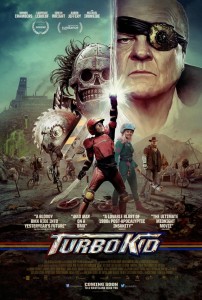 Turbo Kid
Turbo Kid


 Digging for Fire
Digging for Fire
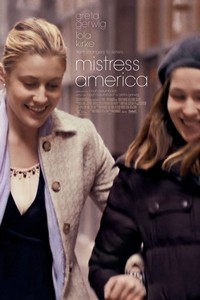 Mistress America
Mistress America
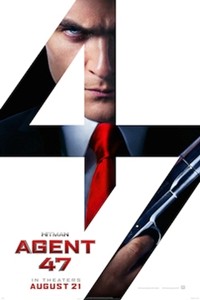 “’Hitman: Agent 47’ stands out for about 47 painful reasons”
“’Hitman: Agent 47’ stands out for about 47 painful reasons”
 American Ultra
American Ultra
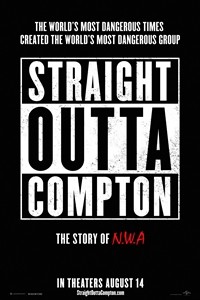 Straight Outta Compton
Straight Outta Compton
 The End of the Tour
The End of the Tour
 Ricki and The Flash
Ricki and The Flash
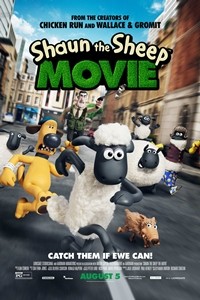 Shaun the Sheep – by
Shaun the Sheep – by  Fantastic Four
Fantastic Four
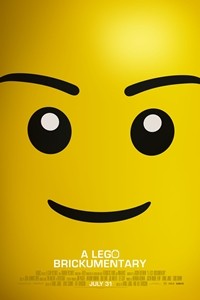 A LEGO Brickumentary
A LEGO Brickumentary
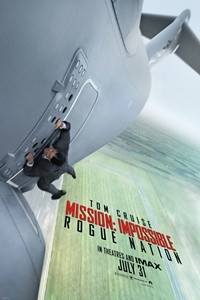 Mission Impossible: Rogue Nation
Mission Impossible: Rogue Nation
 Vacation
Vacation
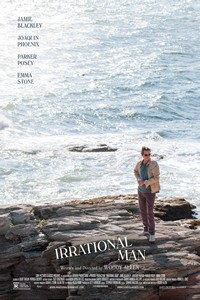 Irrational Man
Irrational Man
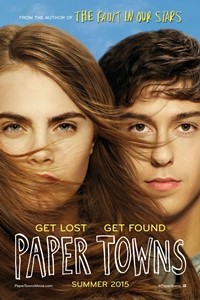 Paper Towns
Paper Towns
 Trainwreck
Trainwreck








